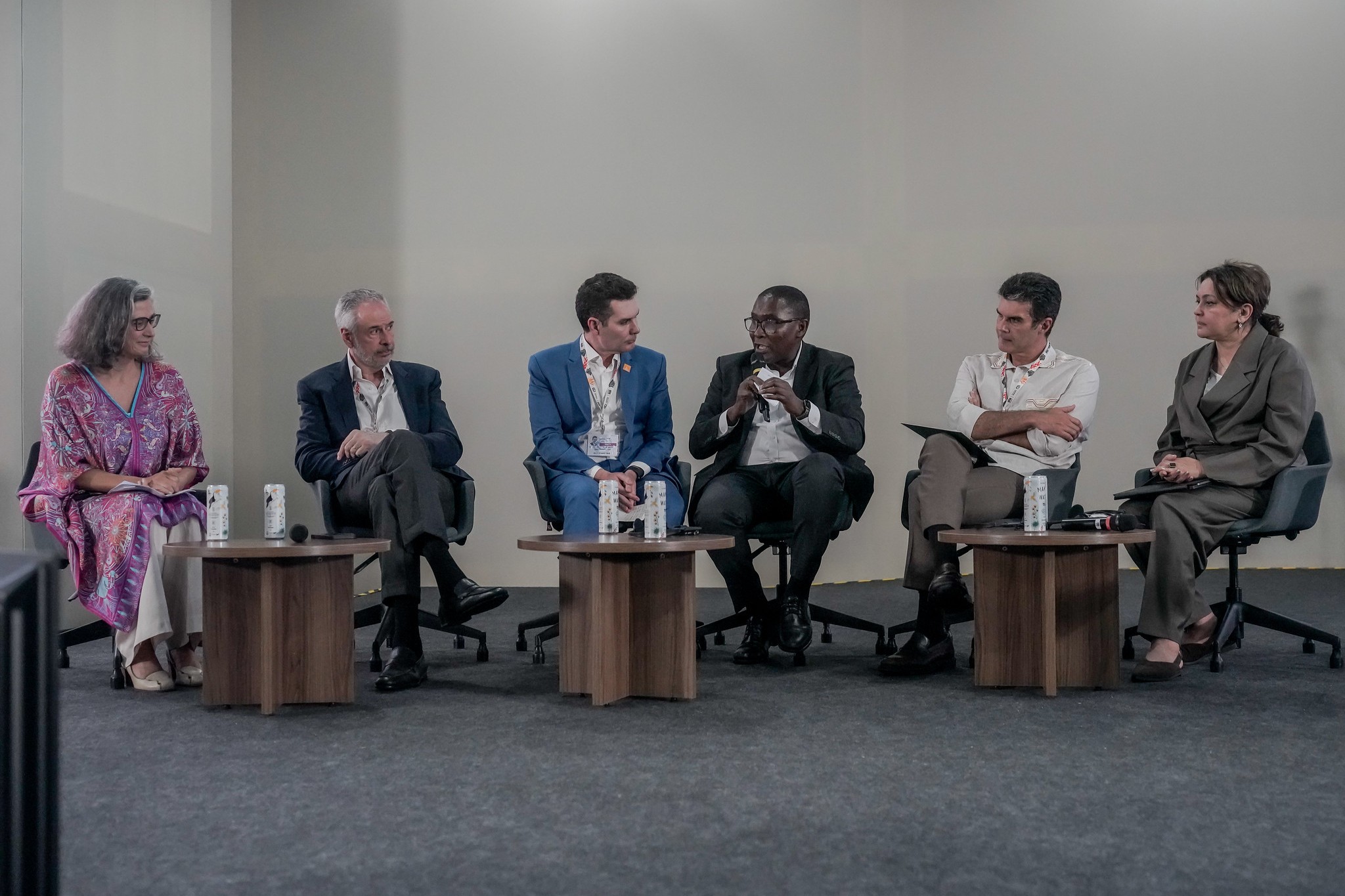Cities Take Center Stage in COP30’s Climate Agenda
COP30 President André Corrêa do Lago highlights the importance of adaptation and multilevel governance. On the occasion, a report was also launched on the inclusion of cities in the new NDCs

By Mayara Souto e Laura Marques/COP30
At the closing of the Ministerial Meeting on Urbanization and Climate Change, held on Tuesday, 11 November, COP30 President Ambassador André Corrêa do Lago reaffirmed the need to place cities at the center of climate negotiations, with particular emphasis on adaptation efforts. During the meeting, a UN-Habitat study was launched highlighting the increased integration of local governments in the latest Nationally Determined Contributions (NDCs).
According to Corrêa do Lago, addressing the impacts of the climate crisis requires coordinated action across all levels of government. “To achieve more effective implementation, we believe that everyone must think together, because no one has the single right answer,” he stated. He further emphasized that while mitigation often receives greater attention, “when we return to cities, when we return to local governments, it is obviously adaptation that becomes the absolutely fundamental issue we must address,” he said, underscoring the need for resilience actions in the face of the climate crisis.
Brazil’s Minister of Cities, Jader Barbalho Filho, highlighted the importance of financing for adaptation measures and noted that local governments are on the front line, directly perceiving the effects of the climate crisis and the needs of communities. He stressed that the goals discussed in Belém can only be achieved through the effective participation of states and municipalities and by placing urban issues at the heart of the climate agenda.
The event was organized by the COP30 Presidency, the Ministry of Cities, and UN-Habitat. Also in attendance were the Governor of California (United States), Gavin Christopher Newsom, and the Governor of Pará (Brazil), Helder Barbalho, representing the multilevel governance approach discussed in the meeting.
Progress in the NDCs
UN-Habitat Executive Director Anacláudia Rossbach reaffirmed the critical role of local entities in implementing climate agreements. “We know that the goals of the Paris Agreement cannot be achieved without local, urban, and multilevel climate action — and without your commitment: governors, mayors, and communities,” she said.
During the event, UN-Habitat launched the study “Urban Content in NDC 3.0: A Global Overview for COP30.” The report shows that the new NDCs contain more than twice as much information about cities as previous plans. “Ensuring adequate housing for all, transforming every informal settlement worldwide, and achieving sustainable urbanization cannot be accomplished without comprehensive climate action,” Rossbach stated.
The study’s findings demonstrate that NDCs are moving from planning to implementation at the city level, with increased emphasis on multilevel governance. According to the report, the international community has been promoting stronger integration between the urban and environmental agendas and recognizing the role of cities in addressing climate change.
“There is quality in those NDCs — more than 75%, nearly 80%, make some reference to cities. Over 80% have broad economic coverage, and more than 80% include an adaptation component. Many of them are costly. Countries have taken this exercise extremely seriously, and they will need your support to deliver more and achieve more,” summarized Selwin Hart, Assistant Secretary-General for Climate Action at the United Nations.
